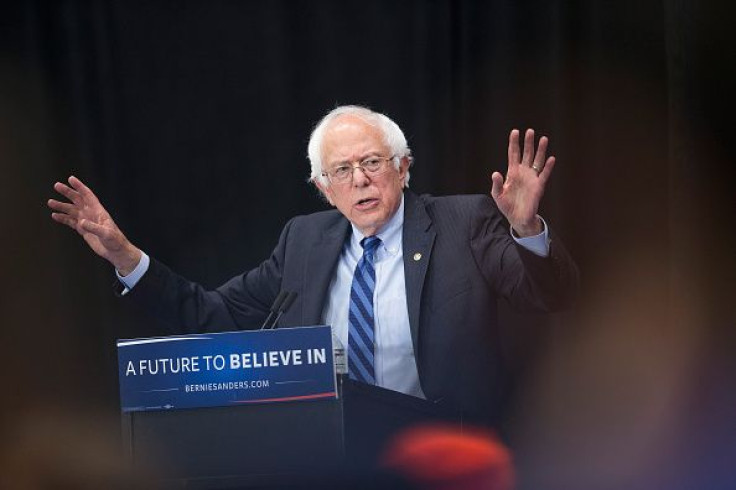Why Bernie Sanders Is Staying In The Race: Vermont Senator Expects May Winning Streak

Bernie Sanders has said he’s staying in the Democratic presidential race until the last primary, and the month of May might give him another good reason to do so. The Vermont senator recently scored a big win in Indiana on Tuesday, and he is likely to take home another two victories in West Virginia and Oregon later this month.
These expected victories won’t be enough for him to overtake rival Hillary Clinton’s enormous lead in the delegate count, but every new Sanders win raises questions about why Clinton hasn’t closed up the nomination. Sanders this week cited his record of winning in 18 states and the narrow gap between he and Clinton in national polls as reasons he will remain in the race. His campaign has repeatedly made the argument that he is the strongest Democratic nominee against Donald Trump, who is now the presumptive Republican nominee.
“We're going to fight in West Virginia; I think we've got a shot to win there. We've got a good shot to win in Oregon, and I think we've got a good shot to win in California and some other states, so we are in this race [until] the last vote is cast.” Sanders said Wednesday in an interview with NPR.
West Virginia, which votes May 10, seems like a state ripe for a Sanders win. He recently led Clinton 45 percent to 37 percent in a Public Policy Polling survey there, and the state’s large union contingent, mostly white population and high levels of poverty put it right in the Vermont senator’s sweet spot. Clinton also recently came under fire there after she said “we’re going to put a lot of coal miners and coal companies out of business” during an event in March.
People criticized Clinton over the comment, and it popped up again when an unemployed coal worker asked her about the remark at a roundtable in West Virginia this week. “How you could say you are going to put a lot of coal miners out of jobs and then come in here and tell us how you’re going to be our friend?” the coal miner asked, according to the Associated Press.
Clinton apologized for the remark, but Sanders’ focus on income inequality is likely to still be popular in the state. In Indiana, Sanders emphasized his opposition to trade deals and his platform to help those who work in manufacturing. In West Virginia, Sanders has focused on poverty, Politico reported this week.
Oregon and Kentucky are next to vote — on May 17 — and Oregon also presents an opportunity for Sanders to cash in with an overwhelmingly white, progressive electorate as he did with other Northwestern states. Sanders’ only Senate endorsement comes from Oregon Democrat Sen. Jeff Merkley, and the state’s vote-by-mail process could be good for Sanders’ enthusiastic supporters.
“Because we're a vote-by-mail election state, we have a three-weeklong Election Day and that's where the grassroots campaigns really make the difference,” Oregon Democratic strategist Stacey Dycus told Politico. She added that the state’s voting system means grassroots campaigns can “get on the phone and call people who are their supporters and say ‘your ballot hasn’t been received yet.’”
We cannot let Donald Trump become the next president. https://t.co/1nFZbCiGV2
— Hillary Clinton (@HillaryClinton) May 6, 2016
Kentucky is likely to be a harder sell for Sanders, as it is a Southern state where strategists expect the less-liberal voters to go for Clinton. At this point, Clinton holds a 290 pledged delegate lead over Sanders and still has 522 superdelegates committed to her campaign, compared with 39 superdelegates for Sanders.
It is impossible for Sanders to win the nomination using pledged delegates alone, but in his NPR interview this week, Sanders reiterated the strategy his campaign has made for a while about flipping superdelegates away from Clinton. He believes the superdelegates in states that he won by a landslide should support him, and the Vermont senator is not going to stop talking about it.
For Clinton’s part, her campaign has largely turned her focus to Trump after he was crowned the GOP’s presumptive nominee this week. She has seemed confident that she will be her party’s nominee and is preparing to ride out the last few months even as Sanders sticks around.
© Copyright IBTimes 2024. All rights reserved.












